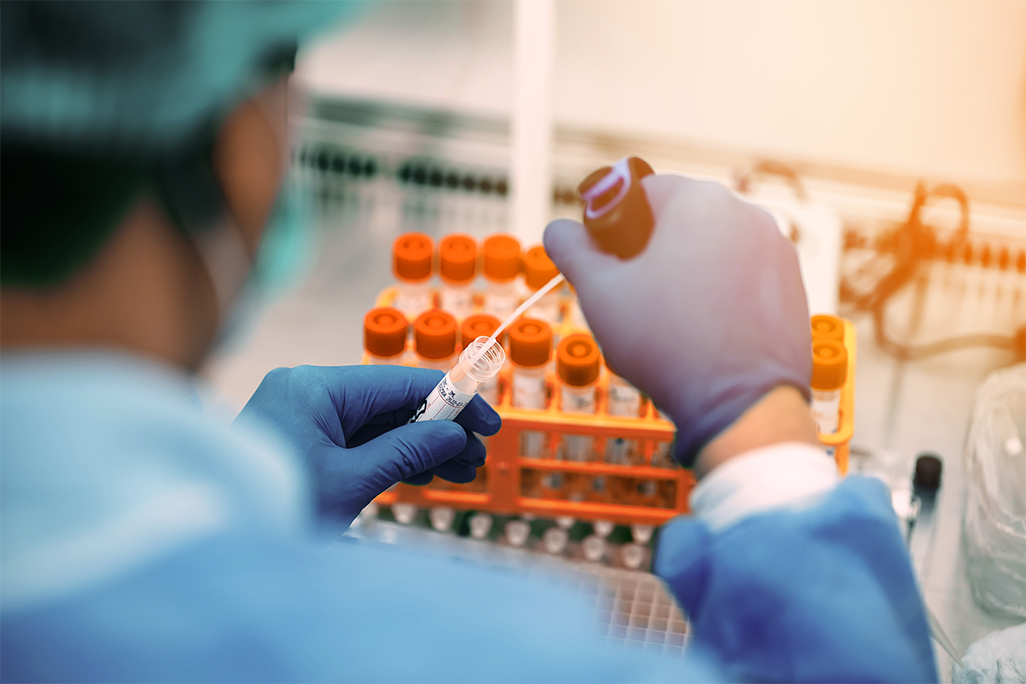New WTO Covid-19 vaccine IP waiver proposed
Published on 12th May 2022
A new vaccine IP waiver proposal has been published by the WTO Director-General following informal negotiations between the EU, India, South Africa and the USA

There has been fierce global debate on whether there should be a waiver of intellectual property (IP) protections for Covid-19 vaccines. Much of the disagreement has centred on whether trade secrets protection, in addition to patent protection, should be included within the scope of a waiver.
A waiver was first proposed at the World Trade Organization (WTO) by India and South Africa in 2020, which included a waiver of the patent and trade secrets protection afforded under the Agreement on Trade-Related Aspects of Intellectual Property Rights (TRIPS). The EU followed with a counterproposal in 2021, which excluded trade secrets from its ambit.
Since then and despite the WTO's 12th Ministerial Conference (MC12) being postponed, WTO members have been encouraged to maintain discussions to continue negotiation momentum. After more than a year of impasse at the TRIPS Council, the WTO Director-General and Deputy Director-General supported an "informal process" that allowed a group of ministers from the Quad (the EU, India, South Africa and the USA) to have discussions on the waiver without prejudice to their respective positions.
The latest proposal
As part of this process, the Quad adopted "a problem-solving approach " to the waiver issue. On 3 May 2022, the outcome document from this process was put forward as a proposal by the WTO Director-General (and not directly from the Quad).
Under the proposal, patent protection provided for under Article 28.1 of TRIPS can be limited by an "eligible Member" by authorising the use of "patented subject matter" required to produce and supply Covid-19 vaccines without the consent of the rightsholder – in accordance with Article 31 TRIPS but without making efforts to obtain rightsholder authorisation under Article 31(b).
While this might seem relatively straightforward, there are some nuances included in footnotes to the proposal that should be highlighted. Firstly, an eligible Member is stated to be any WTO developing country, which includes, for example, China. However, the proposal goes on to state that Members who have vaccine export capacity are "encouraged" to opt of the waiver. And, it provides a further caveat that would apply to China – for the purpose of the waiver, any developing country Members who exported more than 10% of world exports of Covid-19 vaccines in 2021 are not considered to be eligible Members. China has already objected to export share being used as a criterion to define eligibility.
Secondly, again for the purposes of the proposal, patented subject matter is deemed to include "ingredients and processes necessary for the manufacture of the Covid-19 vaccine". While the proposal does not explicitly refer to trade secrets, the historic controversial sticking point, is it possible that the expanded definition of "patented subject matter" is intended to capture underlying subject matter that may be protected trade secrets (and, indeed, subject matter covered by other non-Covid-19 specific patents)? If so, this expanded definition is unlikely to be without controversy.
Article 3 of the proposal provides further clarifications to the waiver, one of which is stated to be under further consideration. Given that the proposal is not in a fully formed state (not to mention the other controversies), the ongoing negotiation process is unlikely to be speedy.
The proposal in its current form only applies to Covid-19 vaccines, but provision is made for further discussion in six months' time on the potential extension of the waiver to Covid-19 diagnostics and therapeutics. This means that negotiations around the complete IP response to Covid-19 are likely to continue for some time yet.
Osborne Clarke comment
The potential erosion of trade secret protection by the backdoor and the opaqueness of the informal negotiation process might account for the somewhat frosty reception the proposal has received, including a non-committal stance towards the proposal from the USA - a member of the Quad.
Initial responses to the latest proposal were given at the TRIPS Council meeting on 6 May 2022. The majority of delegations said that more time was needed to review the proposal internally before engaging in any substantive discussions. Further consultations on how to structure the substantive discussions in future are to be conducted by the TRIPS Council Chair.
The consensus-based nature of the WTO means that a consensus must be reached before any waiver is enacted. It was always hoped that MC12 would result in an agreement on the IP response to Covid-19. Given that MC12 has now been rescheduled for 12-15 June 2022, perhaps consensus, or at least steps towards consensus, can be reached.
However, the initial reactions to the proposal and the previously lengthy journey to enacting the existing access to medicines concessions to TRIPS do not necessarily inspire confidence that a consensus will be reached quickly or, potentially, at all.



